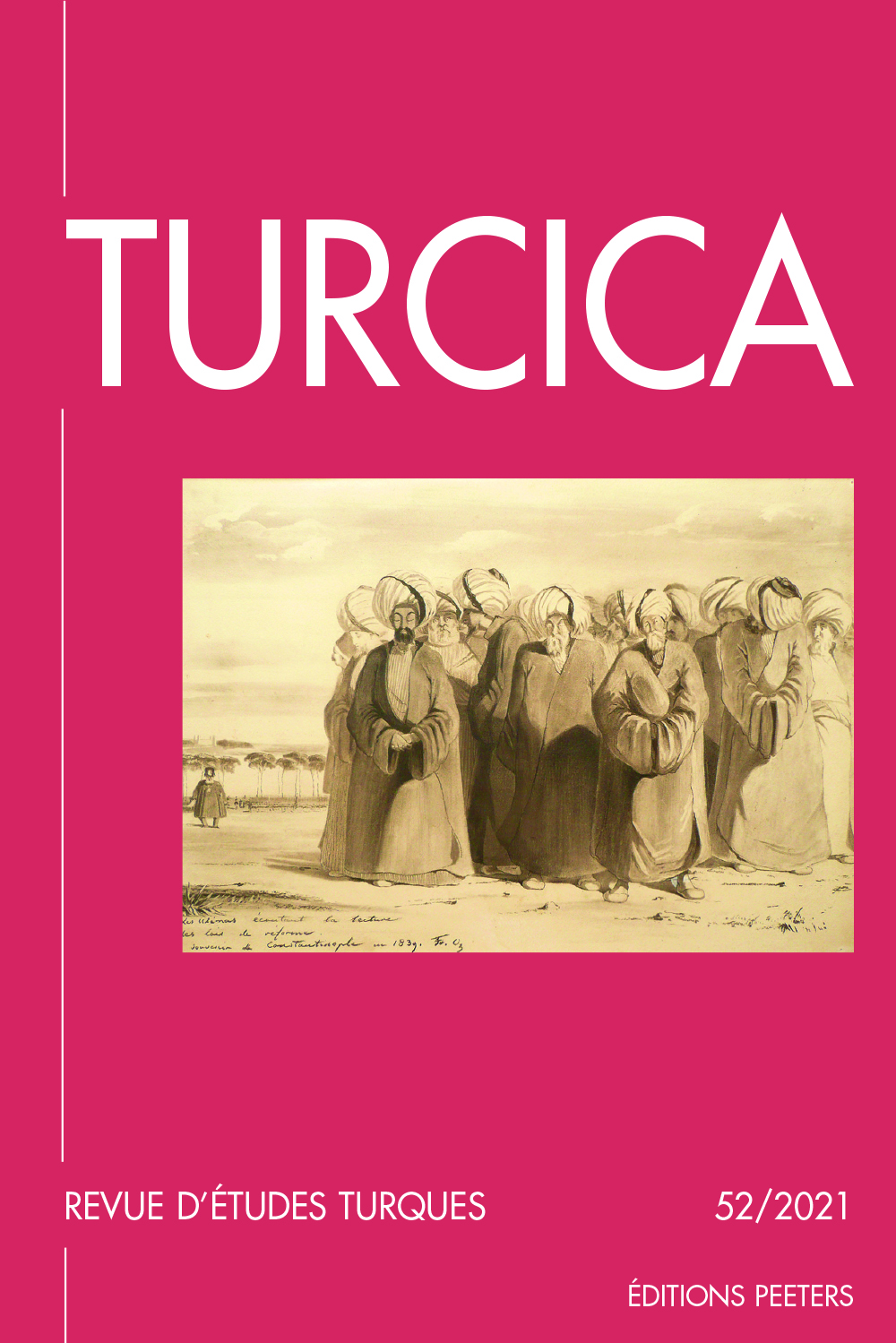 previous article in this issue previous article in this issue | next article in this issue  |

Preview first page |
Document Details : Title: 'A Praiseworthy Custom of Princes' Subtitle: Appointing an Ottoman Court Historiographer in 1601 Author(s): WOODHEAD, Christine Journal: Turcica Volume: 52 Date: 2021 Pages: 523-544 DOI: 10.2143/TURC.52.0.3289818 Abstract : Ottoman collections of official letters are recognized as significant sources for research into imperial diplomacy and correspondence, which form the majority of their contents. However, this is not all that they contain. In Düstûrü’l-inşâ’, a collection compiled c. 1643 and attributed to Sarı ‘Abdullâh Efendi (d. 1660), a former chief secretary (re̕’îsü’l-küttâb), are a number of berâts of appointment for Ottoman officials. Among these is a berât dated 1010/1601 for the appointment of a certain Hükmî Efendi as court historiographer (şehnâmeci). This berât is examined here for three reasons. First, to ask why such a brief, apparently rather insignificant document was included in Sarı ‘Abdullâh’s collection forty years after its issue, and what this might suggest about the compilation of such münşe’ât mecmûʽaları. Second, assembling information on Hükmî’s career as a senior member of the secretariat of the Ottoman imperial council (dîvân-ı hümâyûn kâtibleri) adds to knowledge of this professional body in the early seventeenth century. Third, in outlining the duties expected of Hükmî, the wording of the berât provides new evidence of links between the work of the şehnâmeci and of the later official historian (vakʽanüvîs). Les recueils ottomans de lettres officielles sont considérés comme des sources importantes pour les recherches sur la diplomatie et la correspondance impériales. Ils concernent en effet majoritairement ces sujets, mais pas uniquement cependant. C’est ainsi que dans le Düstûrü’l-inşâ’, recueil compilé vers 1643 et attribué à l’ancien secrétaire en chef (re’îsü’l-küttâb) Sarı ‘Abdullâh Efendi (m. 1600), on trouve un certain nombre de berât de nomination d’officiels ottomans. Parmi ces actes, on relève un berât daté de 1010/1601 portant nomination d’un certain Hükmî Efendi au poste d’historiographe (şehnâmeci). Trois motifs en justifient l’analyse dans le présent article. On peut d’abord se demander pourquoi pareil document, court et apparemment de peu d’importance, fut inséré quarante ans après son émission dans le recueil de Sarı ‘Abdullâh, et ce que ce fait suggère concernant la compilation de ce genre de münşe’ât mecmû‘aları. Ensuite, la récolte d’information sur la carrière de Hükmi comme membre de niveau supérieur du Conseil impérial ottoman (dîvân-ı hümâyûn kâtibleri) complète notre connaissance de ce corps professionnel au début du XVIIe siècle. Enfin la formulation du berât, en précisant les obligations de Hükmî, fournit de nouveaux indices des liens entre le travail du şehnâmeci et celui de l’historien officiel postérieur (vak‘anüvîs). |
 |


